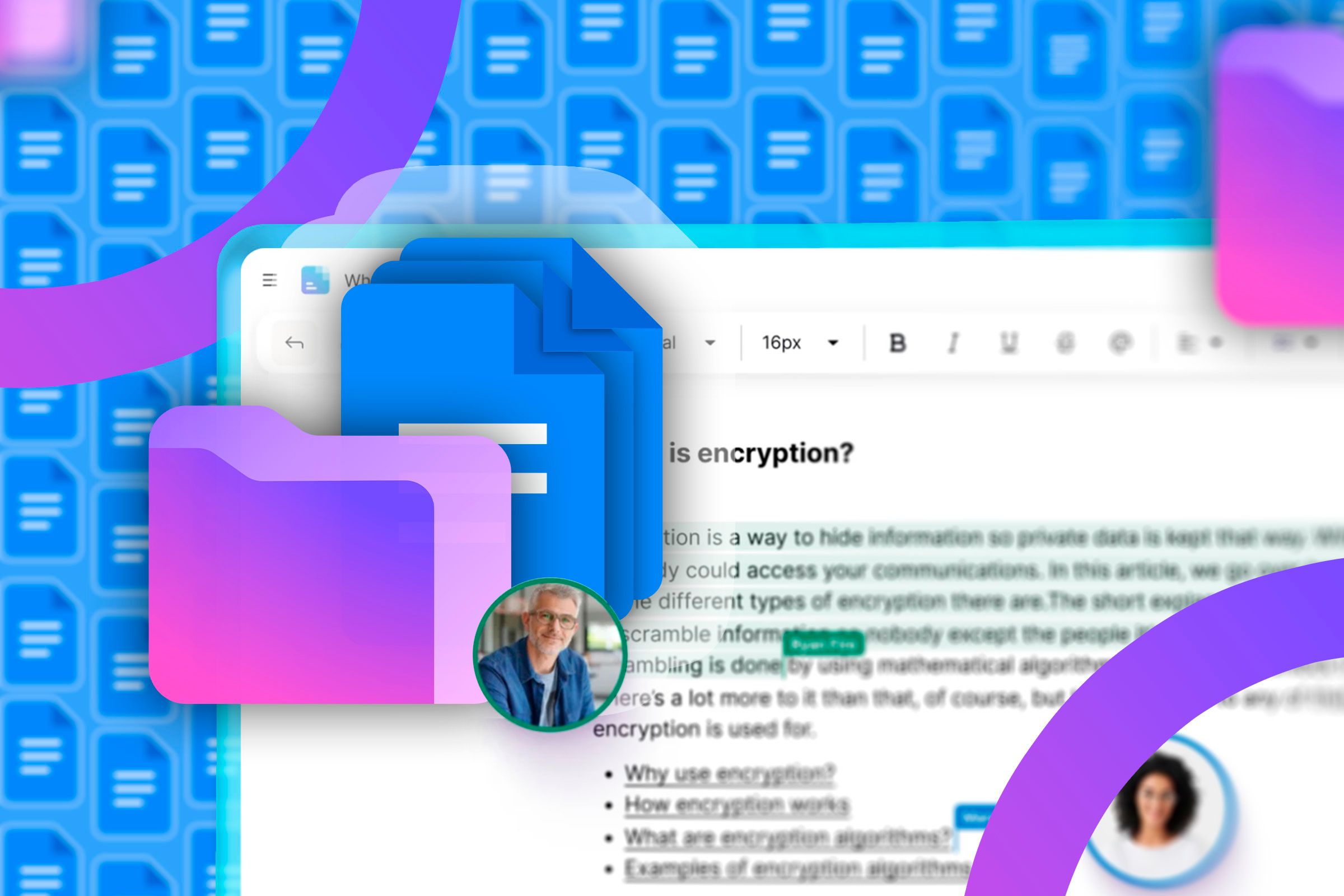Proton now has a Bitcoin wallet, in addition to an AI assistant to help with writing. Is this really what Proton users want to see? I’ve had a Proton account for years, and here’s what I’m personally looking for.
1 File-Syncing for Proton Drive on Mobile and Linux
Proton Drive is place to save or back up files online. Think of it as Proton’s answer to Dropbox, Google Drive, and Microsoft OneDrive. The big difference? Like all of Proton’s other services, your data is end-to-end encrypted.
While there are many cloud backup and syncing services, relatively few of them offer end-to-end encryption. That means Proton Drive ranks as one of the only options I’m actually willing to consider. Like many Proton subscribers, I pay in part because I no longer trust companies to store all of my data without either monetizing it in some way or leaking it all in a massive breach. Encryption mitigates the risk.
Unfortunately, Proton Drive still isn’t a viable option for me. While there is a desktop app that offers file-syncing, it’s only for Windows and macOS. I left Windows behind for Linux well over a decade ago, and these days I actually do most of my computing from Android devices. There’s an Android app, but photos are the only files it will automatically upload. The rest you have to upload manually, which is the most tedious way to back up files.
2 A Better Alternative to Google Photos and iCloud
When you buy a phone these days, part of the setup process involves signing in with online account that your camera photos can automatically upload to. On an iPhone, you back up photos to your iCloud account. On an Android device, this is typically Google Photos. This has become the default way people back up their photos.
What is Proton’s answer to this? It’s Proton Drive. Unfortunately, the experience just doesn’t feel that similar. The app meets the criteria of automatically backing up your photos so that they’re safe, but it isn’t a photo-first design. Proton Drive’s auto-upload feature compares to the same feature found in Dropbox, Google Drive, and that cohort. Google Photos, it is not.
Fortunately, there’s Ente, an end-to-end encryped alternative to Google Photos and iCloud. It offers all of the functionality you might expect from a Proton Photos-style service. The problem is the reality that convincing people to sign up for another service can be a challenge. Since Ente’s code is open source, Proton could feasibly replicate the same experience with a new name and build on that foundation. Or Proton could acquire Ente like it has other projects with shared goals (SimpleLogin comes to mind).
3 Proton Calendar Bridge (Like Proton Mail Bridge)
My wife and I use Proton Mail for our primary email, and we use Proton Calendar to share our schedules. It has all the functionality I need from a calendar app. My biggest issue is that I’m stuck using either the web app or the mobile app. I can’t use alternative clients of any kind.
I really dig the Niagara Launcher for Android phones, but I don’t get to take advantage of the calendar integration. If I could, I’d get upcoming events displayed right on my home screen above my apps.
Likewise, I can’t use Samsung Calendar, which is comparable to other Samsung apps that I consider pretty great. It not only integrates with more of the apps on my Galaxy Z Fold 5, but it’s just quicker to navigate than the Proton Calendar Android app.
I’d love to see a Proton Calendar version of the Proton Mail Bridge app, which allows you to use your Proton Mail account with third-party clients like Thunderbird and Outlook. Granted, that’s a desktop-only app, so even if a desktop Proton Calendar Bridge did come out, that still wouldn’t be of much use on my Android phone.
Here’s a simple one. While I don’t want to give Google my contacts, there is an obvious peace of mind that comes from knowing that if I shatter my phone on the driveway getting into the car, I haven’t lost my contacts. Right now, I export my contacts manually into a VCF file and keep a backup that way. As with any manual backup, there’s the risk of my backup being outdated if an accident happens.
Due to the end-to-end encryption, Proton is a provider I would actually trust with a backup of my phone contacts, just like I trust it with my email contacts. If Proton could also backup my call log, that’d be great, too.
5 Google Sheets and Slides Alternatives
In summer 2024, Proton rolled out Docs in Proton Drive, an alternative to Google Docs. It can open DOCX files, provides the essential formatting options, and has many of the collaboration features people have come to expect from Google Docs. It was a big necessary step in helping more people switch over from Google’s suite. I like Proton’s implementation, which almost feels more like a distraction-free writing app than a word processor.
Yet Google Docs is only one component in Google’s online office suite. To complete the job, Proton also needs an option for editing spreadsheets (like Google Sheets) and presentations (like Google Slides).
I’d be surprised if this isn’t already on Proton’s roadmap, but it’s precisely the kind of thing that comes to mind when Proton announces features like a Bitcoin wallet and AI-generated text. Those feel like distractions, if not an outright shift in the wrong direction.
I’m a big fan of Proton. Protecting your data online has generally been a technical affair, and usually involved an understanding of PGP keys or self-hosting. Proton’s services are as easy to sign-up for as any other web account, and for the most part, they just work.
It’s nice to see Proton roll out new options. I may not use Proton Pass, for example, but I get the hole the service fills. I just hope Proton devotes more resources toward fleshing out its existing offerings before getting too caught up in what can be considered the online fads of the day.









